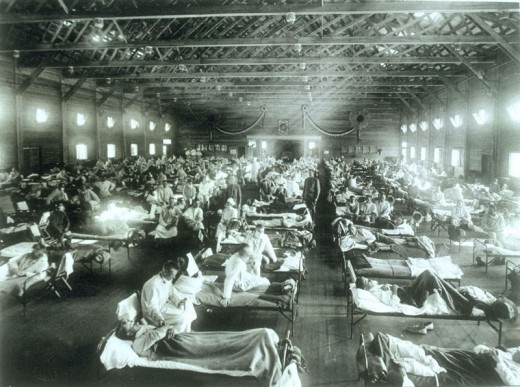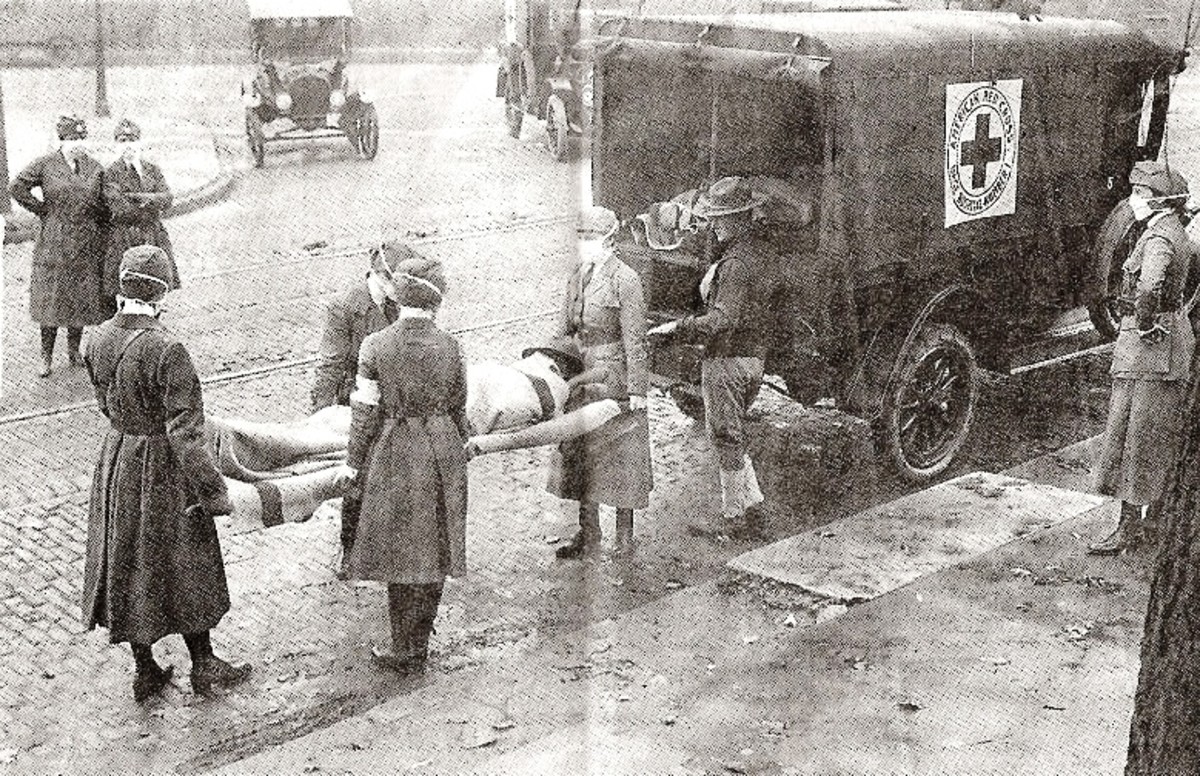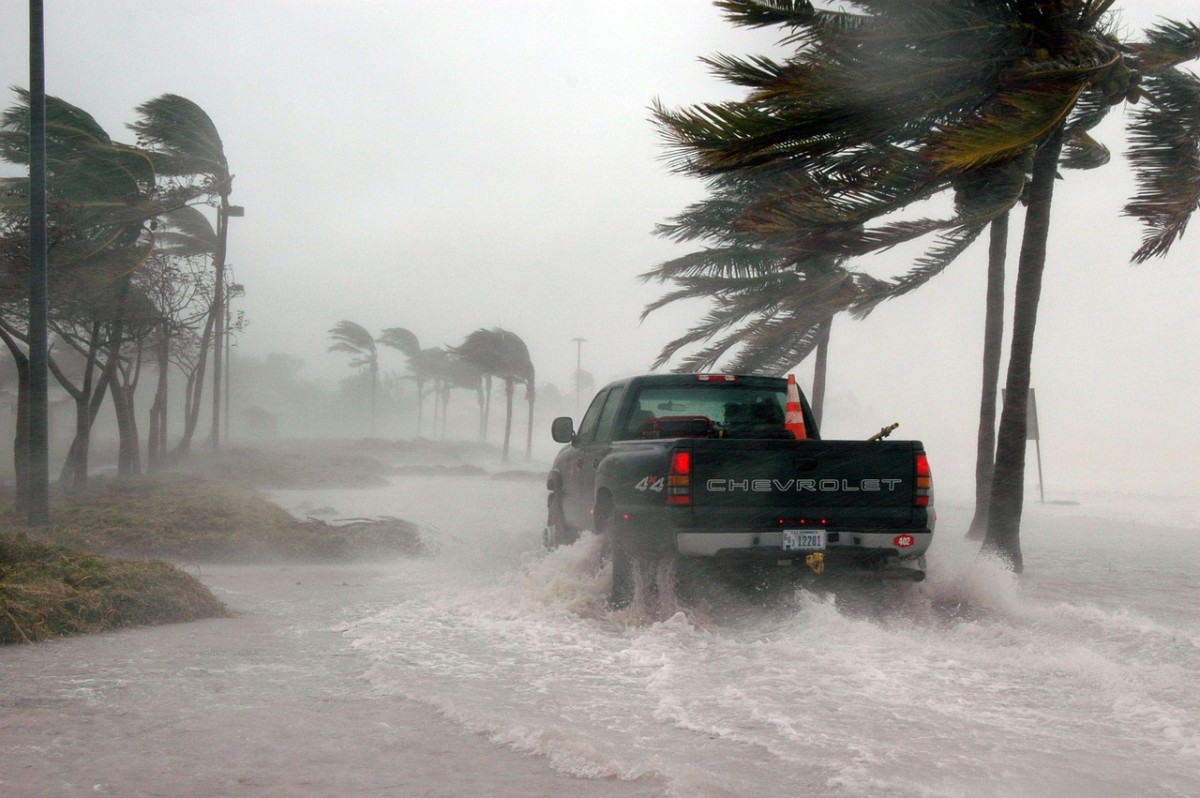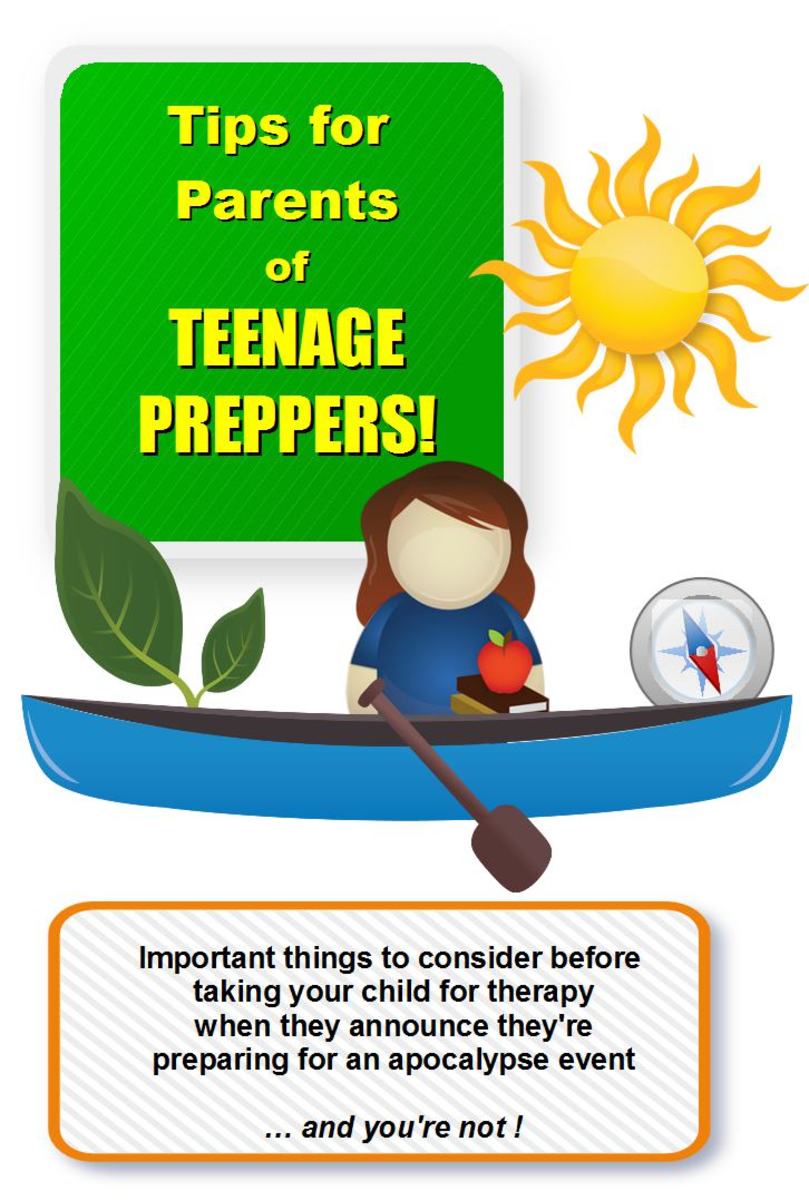How to Survive an Influenza Pandemic: The Short Term
Will We See the Likes of This Again?

Introduction
You may remember that I wrote a hub, on the possible factors that could lead to Human Extinction. Among those factors was an enemy that has stalked us ever since we decided to take up farming and live in crowded, densely populated settlements; that enemy of course is the virus, or really it should be viruses, as there are many different types that are capable of infecting us. Among the deadliest of them all is the infamous influenza virus, notorious for causing the deaths of tens of millions around the world right after the cessation of the Great War, another great human tragedy, but of our making.
We often look at the influenza pandemic of 1918 and think, ‘well, that’ll never happen again; we have modern medicine.’ You can understand that viewpoint to an extent; after all, we managed to exterminate one of the deadliest viruses known to man, smallpox back in the late 1970s. However, we often forget that viruses are a form of life, and are thus subject to the same laws of evolution as everything else. If presented with a challenge, they will simply adapt to whatever they encounter, which in their case is things like medicine, vaccines and antibiotics. In this hub, I want to try to outline what an influenza pandemic of a scale not seen before might look like to ordinary people, living an ordinary life, in an ordinary neighbourhood. How would they cope? What would they be prepared to do? Where would they go?
What a Global Pandemic May Look Like
The Immediate Aftermath
The Early Days
Imagine coming home from a busy day at work, you slump gratefully into a chair, flick on the TV to be greeted by the stern, solemn face of a news reporter informing you that a new virus, namely a new influenza strain has exploded in Southeast Asia, claiming the lives of thousands already. The news reporter goes on to tell you that the world may be facing a crisis, but as of yet the US and Europe remain virus free. Initially you may react with shock with the thought of thousands dying in South East Asia, but the news that it hasn’t reached your country, makes you feel sceptical. After all, this isn’t the first time that a pandemic has broken out, and yet it always seems to be in a part of the world far away from you. You’ve never seen anyone with Sars or Bird Flu, so why worry, you’ll be fine.
However, on this occasion things are different; this particular strain of influenza is more deadly than any before, on account of evolving resistance to almost all known drugs and medicines. Moreover, a highly mobile interlinked population would allow the virus to spread easily across the world. It would already be present before the authorities were even conscious of its existence.
As time advances, the crisis deepens, in no time at all, the virus is present on all inhabited continents, and the stark realisation that this is a virus the likes of which have never been seen before compels scientists around the world to come together and attempt to produce a vaccine. With a global pandemic now on the rampage, you have to face the utterly frightening possibility that either you or somebody close to you contracts the virus. If somebody you live with, starts showing viral symptoms then it is imperative that they be isolated or quarantined. If the worst should happen, then the best thing to do is either bury or burn the body to eliminate the chances of any death related diseases.
As the threat grows, many people will instinctively flee vulnerable areas like cities. Ironically these people may actually end up committing a gross error by spreading the virus into the countryside. Also, the obvious result of millions attempting to leave a city at the same time is total and utter chaos. The government will undoubtedly attempt to maintain essential services, as a sign that they are still in control. However, just at the time when the government needs all the manpower it can get, many people will not show up for work, either through sickness or looking after sick relatives or friends. In a pandemic of this sort of scale, medical staff will become the most important people of all, and as devoted professionals they will do all they can, but with the sheer amount of casualties it won’t take long for hospitals to reach breaking point. Most will end up literally barricading the building to prevent people from pouring in. It sounds drastic, even unthinkable but you imagine a city like Los Angeles with 10 million people, only a tiny percentage of the population would need to become infected in order for hospitals to become overwhelmed, because in total, L.A. hospitals have just 25,000 beds, with around 4000 available each day; occasionally the availability can slip into hundreds. So that gives you an idea of just how fragile the fabric of our infrastructure is.
Before hospitals and pharmacies shut their doors, you need to try and get hold of medical supplies such as antibiotics and IV’s. If you are a medical professional, whatever you do, do not reveal that information to anyone, as there will probably a great bounty placed on trying to find doctors and nurses to treat the sick. It sounds cruel, but if you have a sick relative or partner at home, they must take priority.
Day 19
Almost three weeks in, and the pandemic crisis has escalated enough for the governments of the US and the UK, to declare a state of emergency. The leaders of the respective countries are evacuated to undisclosed locations, leaving the remnants of the military to try and maintain some sort of order. With martial law in full effect, both the army and local militia are deployed onto the streets of major cities. The government also takes the step of closing the borders, but any hopes of controlling the pandemic have long since vanished. They make the move purely to reassure the public that they are doing all that they can.
Day 21
Two days later, the government finally concedes defeat by admitting that the pandemic is no longer containable. The only advice they give is to simply stay at home and avoid any unnecessary travel. Tens of millions have already been infected and that already alarming number continues to rise.
By now, any apathetic thoughts have disappeared from your mind, as you watch the crisis develop around you. Somewhere, deep down you may still harbour hope that soon things will calm down and return to normal. However, your anxiety heightens when you decide to log onto the internet, and find that the system is down. Next you check the phones, and it’s the same story, no dial tone whatsoever. What’s happened is that the global communications systems have shut down possibly for good, with no computers, virtually every industry on the planet is affected, everything from the emergency services, power and internet providers, and one of the most important of all, logistics which is mostly operated and processed by computers. With the loss of such an important commodity, petrol/gas stations will never receive another delivery, but even worse neither will the supermarkets and shops that sell groceries.
Day 22
With the loss of the communications network, all shipping ports close down, leading to an instantaneous collapse in international trade. Meanwhile you continue to sit out the pandemic at home, surviving on whatever food and water you’ve managed to get your hands on. On average, the typical westerner has enough groceries in their home to last for maybe three or four days. Most experts estimate that to survive a pandemic or indeed any sort of societal collapse, you’d need at least three months worth of food and water. Really, you should look to try and stock up in the very early stages of the pandemic if you can. But it would take a tremendous amount of foresight to totally prepare yourself for such an eventuality. After all, a pandemic could strike tomorrow, and I would wager that the majority of us are underprepared, and it would likely be the same in this particular scenario. With the majority of society facing starvation, widespread riots break out, anarchy reigns supreme, it sounds farfetched, but in the wake of Hurricane Katrina, it took just a few days for New Orleans to descend into anarchy and chaos, you’d think that the fabric of society would last longer than that. But it’s worth remembering that any society is just nine meals away from anarchy, most of us enjoy three meals a day, so three days is all that it would take.
Day 24
As a result of fuel and labour shortages, multiple power stations fail and shut down. Our last link to the wider world, the TV shuts off for good. The loss of up to date information may be too much to take for certain people, and may be enough to shatter already fragile nerves. In the wake of the failure of TV’s, widespread blackouts follow, with the loss of electricity the majority of us have now been pushed right to the limits of our practical knowledge. For example, how would you preserve food without the use of a freezer?
Week 12
Several weeks have passed by, more than half of Britain’s population has succumbed to the virus, globally the figure is unknown, but thought to be hundreds of millions at least. The cities are choked with millions of unburied bodies that will remain where they fell on account of the lack of any sort of service that could remove them.
The pandemic burns itself out, but the survivors are not out of the woods yet; cholera, dysentery and famine still pose a major risk. The death toll continues to climb, but through natural immunity some will survive. However, it’s important not to overlook the psychological aspects of having to endure such a horrific event, for some people, acknowledging that the world has changed, and that the lights will never come back on is a transition that they will find hard to complete.
Recommended Products from Amazon
Week 14
Two weeks later, you are about to go to the toilet when you discover to your horror that it no longer works. The problem is that sewage pumps operate on an electronic grid, so of course would have shut down as soon as the power stations failed. With no toilet, you need to find an alternative way to deal with sanitation. The best thing to do would be to literally carry it in a bucket out into the garden and bury it to minimise the risk of any sanitary disease. The loss of the toilet is followed closely by the failure of the entire water supply. You can survive a month without food, but barely three days without water, so you will need to visit any local shops and find any water you can get your hands on.
You step outside into the street and take a moment to observe the stinking piles of garbage bags on the roadside verge. Of course, there are no longer any garbage men to collect them, so you’re greeted by rats, maybe foxes and perhaps a few stray dogs. You may even come across a dead body or two. As you proceed towards your local store, you may encounter survivors here and there. One of the things you have to be mindful of is the possibility of encountering any sociopathic or predatory people who will stoop to anything in order to procure supplies. You also have to be mindful, that prisons will no longer be able to hold any surviving criminals.
You make it to the supermarket, but are not all that surprised to find that everything has been swiped; you may hear the sound of automatic gunfire all around the city, particularly in the US where guns are more common than in the UK. Some people will form gangs to obtain resources; they will loot people’s houses, looking for anything of value such as food, drugs, gold and silver. No doubt your own home will be targeted, so ensuring that your house is secure is of paramount importance. There’s probably little you can do to barricade your home, but one thing you could do is to throw clothes and other items on the front lawn to give the impression that your house has already been looted. Whatever you do, do not fight the looters, just stay put, lie low and remain as invisible as possible for as long as you can.
More to follow:
More Tips on How to Survive a Pandemic
A Link to Part Two
- How to Survive an Influenza Pandemic: Part Two
The influenza pandemic has struck, many have died, but you have survived, by keeping a low profile and staying mainly confined to your home. But the time has come to leave and make a new life for yourself...
Useful Links
- Ray Mears Bushcraft & Woodlore Camping Equipment and Courses
The website of Ray Mears, a world leading expert on the art of bushcraft and survival in the wild. - Survivalist.info - INFORMATION FOR SURVIVALISTS
Links to all the best survival and emergency preparedness information. - After Armageddon - YouTube
A documentary outlining how mankind might cope with a pandemic, based on past disasters.









